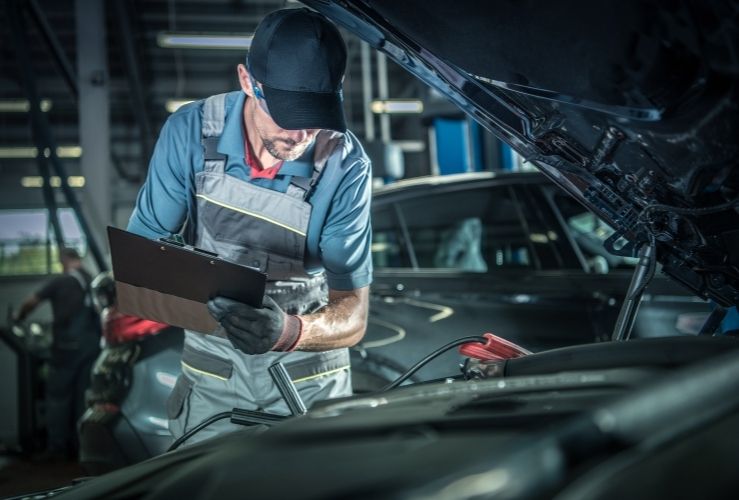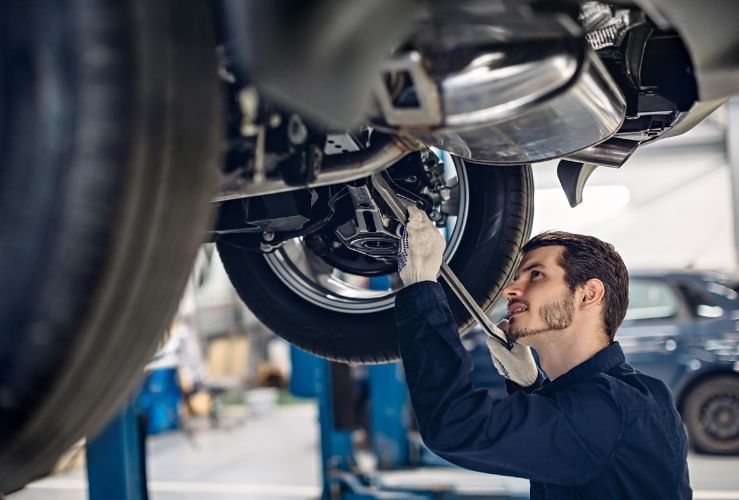What is car depreciation?
Car depreciation is the difference between the price you pay when buying your car, compared to the price you would get if you decided to now sell it. It’s the rate at which your car’s value falls over time. Most cars lose value over time, unless they are - or become - particularly rare.
When purchasing a new car, one consideration you may make is how much does a car depreciate per year in the UK.
The below car depreciation guide indicates how much value a car loses over time.
Point in time | Depreciation | Remaining value |
Day 1 | up to 10% | up to 90% of original value |
Year 1 | 15-35% | 65-85% of original value |
Year 3 | 40-60% | 40-65% of original value |
Year 5 | 60-70% | 30-40% of original value |
Year 8-10 | 80% | 20% of original value |
How much does an older car depreciate per year?
Car depreciation tends to happen during the first 10 years. After this point, your car’s value will have dropped to the lowest it is likely to reach. It will either stay at the new value, or eventually begin to climb as a classic depending on the make, model, and desirability.
Car depreciation rate - What are the key reasons a car loses value?:
You've driven it off the forecourt
As soon as you drive a new car off the showroom forecourt, your car will depreciate in value - possibly by as much as 10%.
This is partly because the specifications you choose are unlikely to precisely meet the needs of another driver (colour, engine size etc).
It will also simply be less desirable because it isn't, strictly-speaking, brand new.
Mileage
Mileage is one of the first things people check when buying a used car.
The higher the mileage, the more the vehicle depreciation.
The average UK mileage is 10,000-12,000 miles per year.
Driving your car more frequently/for longer distances will accelerate the car depreciation rate.
Size and cost of the car
In terms of the amount of value lost over time, a larger, more expensive car will lose more.
In the same period, a smaller car will use less pound-for-pound value, even if the percentage lost is the same for both vehicles.
Safety issues
When a new vehicle model is released it may not be clear how reliable it is.
Over time, it may develop a reputation for faults relating to safety - which can dissuade potential buyers, increasing the level of vehicle depreciation.
Some cars get recalled in large numbers due to such problems. If your car is one of them, its value is very likely to fall dramatically.

Emissions compliance
If a vehicle does not meet the latest emissions standards due to its age, it will cost a new owner more as regards things like emissions charges and VED, impacting its value.
London’s ULEZ and other city-based clean air zones (CAZs) such as Bath’s Clean Air Zone are accelerating car depreciation rates even further,
Out of date warranty
If your car's warranty is out of date, its value will be affected.
Equally, when a car is sold before warranty expiry it may keep more of its value.
The good news is more new cars than ever have longer warranties - sometimes up to seven years, helping to reduce the car depreciation rate.
Vehicle service history issues
A detailed service history will help your vehicle maintain more of its value. A poorly recorded service history will of course do the opposite.
Unreliable/undesirable car brand
Some cars are simply better made or more desirable than others.
If your vehicle has a reputation for being reliable, it may keep its value better. Conversely, a model that develops a reputation for regular faults will be much less valuable over time.
Fuel efficiency
Smaller, more fuel efficient cars will be more attractive to a greater group of potential buyers, and therefore may keep their value better. Meanwhile, a "gas guzzling" 30 mpg vehicle may be far less desirable after the same period.
Out of date technology
A year after buying a new car, the technologies inside will likely have been superseded. This makes it less desirable, and therefore worth less.
Even if the same model is available with the same tech a year later, there will be competitor models that do offer newer, better technologies.
A car buyer may also want their new smartphone to sync up with a prospective vehicle. The older a vehicle gets, the less likely it is to be compatible with new smartphones.

More frequent repairs with age
As a car ages, components wear out and problems start to brew. This means anyone buying an older car will need to factor in future repair costs - reducing the perceived value of the vehicle.
In addition, while repairs may have been undertaken to keep the car in good working order, the quality of these repairs (and replacement parts used) may be difficult to ascertain. Some garages use cheaper, lower quality parts.
Best value cars: how old should they be?
If you’re looking to maximise the value of a used car, the sweet spot is around five years old (as a guide).
This minimises car depreciation and maximises reliability for the sum paid.
 Credit: VanderWolf Images - stock.adobe.com
Credit: VanderWolf Images - stock.adobe.com
Fastest depreciating cars?
According to AutoExpress, the Mercedes S Class (pictured above) is the fastest-depreciating car in the UK, losing £93,385 on its purchase price of £141,818 (65.8%).
This is followed by the Audi A8 and the Subaru Impreza.
Slowest depreciating cars?
In contrast, according to buyacar, the Tesla Model S has the lowest level of car depreciation, retaining 63.35% of its average value after 3 years.
The second slowest depreciating car is the Alpine A110, followed by the Jaguar E-Pace.
Car depreciation calculator
Curious to find out how much your car is likely to depreciate per year?
You can use an online car depreciation calculator to estimate the depreciation of a car at any point of its lifetime.





